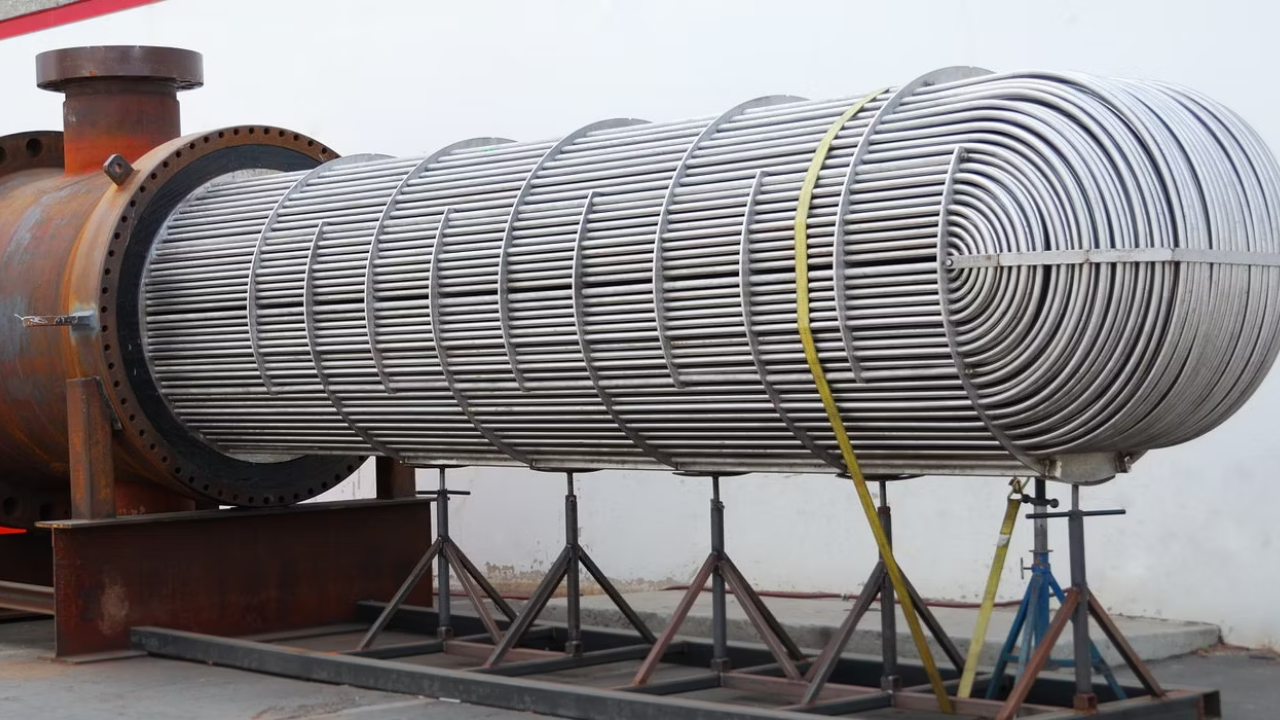Heat exchangers have undeniable roles in severe industrial processes. It provides efficient heat transfer between two or more fluids to ensure operations run safely and smoothly. The fixed tube sheet heat exchanger is one of many types of heat exchangers and has a simple design, which makes it very effective for a controlled temperature environment. Choosing a heat exchanger that will use the full spectrum of your heat transfer application for maximum efficiency and reduced operational costs is essential.
Fundamentals of Fixed Tube Heat Exchanger Functionality
Fixed tube heat exchangers can be designed efficiently. The shell is rigid, and the tube bundle is attached securely to both ends. Though this design has a limited capability for thermal expansion, it promotes stability. This heat transfer occurs without mixing hot and cold fluids, passing through different channels.
This heat exchanger is ideal for applications requiring steady temperature control. It is a significant improvement over floating head heat exchangers in some applications, being less expensive, easier to install, and more suitable for moderate-temperature applications.
Industrial Applications of Fixed Tube Heat Exchangers
HVAC and Refrigeration Systems
Fixed tube heat exchangers control temperatures in air conditioning and cooling applications. Their refrigeration function provides dependable thermal exchange, making them a viable option for large commercial buildings and refrigeration units.
Power Generation Facilities
Fixed tube heat exchangers are used in power plants. They act as steam condensers and auxiliary cooling systems, making power generation more efficient and generating constant operational output.
Pharmaceutical and Chemical Industry
These heat exchangers are crucial for temperature-sensitive processes involving chemicals. Precise thermal control allows for reaction under ideal conditions without degrading product quality.
Beverage and Food Industry
Fixed tube heat exchangers are essential for processing and preservation. They maintain the necessary temperatures to pasteurize, sterilize, and fabulous food and beverages to ensure quality and safety standards.
Water Treatment and Desalination Plants
These heat exchangers are used in water treatment facilities’ thermal distillation and purification processes. Their reliable heat transfer capabilities make this possible, as does the clean, potable water they provide.
Why Fixed Tube Heat Exchangers Are Preferred for These Applications
Several advantages make fixed tube heat exchangers preferred to use in industrial settings.
Reliability: Their stable design ensures consistent performance in steady-state temperature environments.
Cost-Effectiveness: They are cheaper than other types due to the simple fabrication and installation process.
Suitability for Moderate Temperatures: Fixed tube heat exchangers work well in applications with low thermal expansion concerns.
Limitations and Considerations in Application Selection
Fixed tube heat exchangers have many advantages; however, they are limited.
Maintenance Challenges: The tube bundle is relatively difficult to clean, an issue in high-fouling environments.
Limited Thermal Expansion Handling: Floating head heat exchangers are often better when significant temperature differences are involved because they can accommodate thermal expansion.
Emerging Innovations: The goal is to develop new technologies that improve the versatility of fixed tube heat exchangers, including better cleaning methods and an increased application area.
Conclusion
Fixed-tube heat exchangers are necessary across HVAC, power generation, chemical processing, and water treatment industries. Your operational needs, such as temperature control and regular maintenance, will help you choose the proper heat exchanger. Fixed-tube heat exchangers will likely advance with technology in the future, becoming more efficient and versatile.
